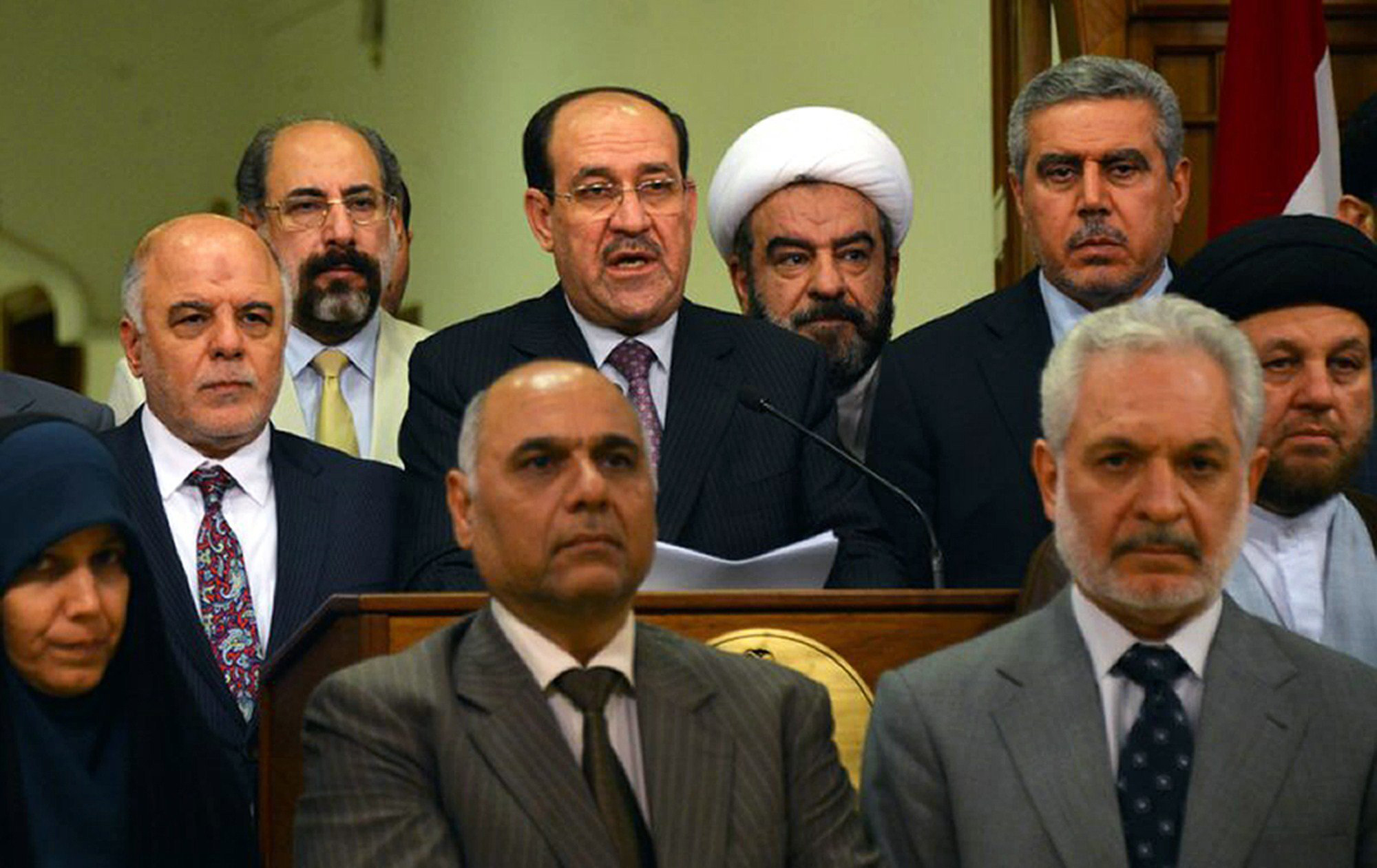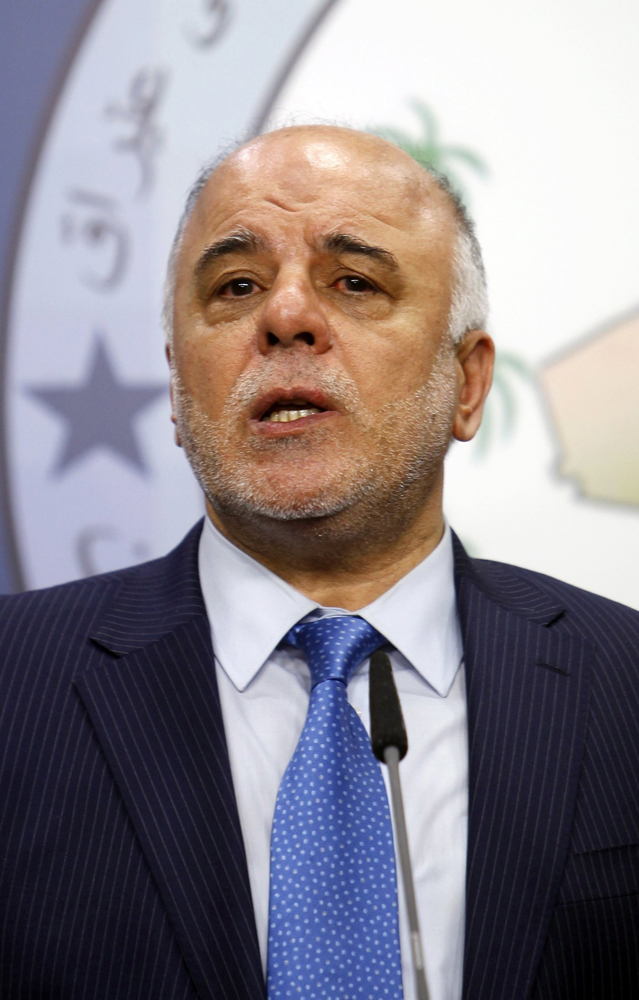
Few in Iraq this morning were mourning the loss of Prime Minister Nouri al-Maliki, who stepped down Thursday night after months of domestic and international pressure.
“We are thirsty for change. We had this government since 2003 and still it’s not united. We want someone now who can unite Iraq,” said Ammar Al-Jaf, watching al-Maliki’s resignation re-run on television in his barbershop in Erbil. A Sunni who grew up in Baghdad, like many here, he says al-Maliki favored his own Shiite—sect and in so doing deepened divisions between the people of Iraq.
Even in refugee camps, filled with Iraqis who fled the Islamic State of Iraq and greater Syria (ISIS) in June, there were calls for al-Maliki to step down. Many displaced Iraqis said they fled because they feared being caught up in battles between Iraqi government troops and ISIS, but still preferred the rule of the Islamist militants to al-Maliki’s Shiite-first agenda.

The hope now is that Haider al-Abadi, a veteran Shiite lawmaker and the man named to replace al-Maliki, will be able to bring Iraq’s divided political factions together. “Al-Abadi promised to support dialogue with the Sunnis and said that he will consult Kurdish and Sunni factions,” said Sarmad al-Taee an Iraqi journalist and commentator. He argues that al-Maliki ran Iraq and his own Al-Dawa party with orders rather than discourse, alienating Kurds, Sunni and eventually his own Shiite sect.
This feeling of disenfranchisement among Sunnis may have helped ISIS claim, and hold, swathes of Iraqi territory. The well-armed Sunni tribes of Nineveh province and west to the Syrian border could have turned the tide against ISIS, but there was little incentive to fight for a government they felt has sidelined their needs for years. On top of that, many Sunnis and Kurds argue al-Maliki stacked what should have been a non-partisan, non-sectarian army with politically appointed, often Shiite commanders, turning the Iraqi national forces in to his own private militia. That army proved weak and thousands of Iraqi soldiers simply dropped their weapons and fled in June as ISIS fighters approached.
“In every country the military should be separate from the government,” said Al-Jaf. “But al-Maliki used the military to serve himself. The army should serve the country and the people. He filled all the military’s with high positions from his family.”
Now, there is heavy pressure from inside Iraq, regional leaders and the U.S. to dismantle the sectarianism that has fractured the country and left it vulnerable to ISIS. Al-Taee, who is from Basra, says many Shiite leaders now understand this and will push for more inclusive politics under the new government. “If al-Abadi doesn’t do this he will be considered weak and the other party leaders will sack him,” he said, noting that a failure on this front could cause the international community to withdraw diplomatic and military support. “The Shiites now know the importance of dialogue and they don’t want to make the same mistake as before.”
But it may be too late. The mistakes by al-Maliki’s government have further exacerbated the divisions in an already fractured country and may have made the disintegration of Iraq all but inevitable. Many here now talk of dividing the country into Sunni, Shiite and Kurdish territories. Since the start of the crisis with ISIS sectarian calls to arms have intensified on both sides of the Sunni-Shiite divide. The task ahead for al-Abadi will not be an easy one.
“If he can build a strong Iraq and share equally with all the people of Iraq, the people will support him and we can defeat ISIS,” said Irfan Ali, an engineer from Kurdish city of Sulaymaniyah. Getting the Sunni masses and tribes back on board for a national government will be key. But even if the Sunnis give their support, Shiites and Kurds may be hesitant to provide them with arms to fight ISIS—worried about where those guns will be pointed once the militants are defeated.
For their part, the Kurds have kept their distance with the central government, and are now engaged with ISIS themselves. They have been in conflict with Baghdad for months over power sharing and oil exports resulting in the central government halting transfer payments to the Kurdistan Regional Government (KRG) in January. “We have been clear that we are not just looking for a change in the faces in the government,” said Falah Mustafa Bakir who heads the KRG’s Department of Foreign Relations. “We want a change in the power sharing arrangement and a more inclusive government.”
Amid the chaos created by the ISIS invasion, the Kurds have managed to secure contested territories, such as Kirkuk, and have inched closer to independence. Last month, Kurdish President Massoud Barzani said that he will hold a referendum on Kurdish sovereignty, a decades-old goal of the Kurdish people.
It’s not clear what a new prime minister could offer the Sunnis and Kurds to bring them back into the political fold with Baghdad. But leaders in Iraq seem hopeful, though cautious. “This is the start of process,” said Bakir. “But we need to wait and see. We shouldn’t be too optimistic.”
More Must-Reads From TIME
- The 100 Most Influential People of 2024
- The Revolution of Yulia Navalnaya
- 6 Compliments That Land Every Time
- What's the Deal With the Bitcoin Halving?
- If You're Dating Right Now , You're Brave: Column
- The AI That Could Heal a Divided Internet
- Fallout Is a Brilliant Model for the Future of Video Game Adaptations
- Want Weekly Recs on What to Watch, Read, and More? Sign Up for Worth Your Time
Contact us at letters@time.com